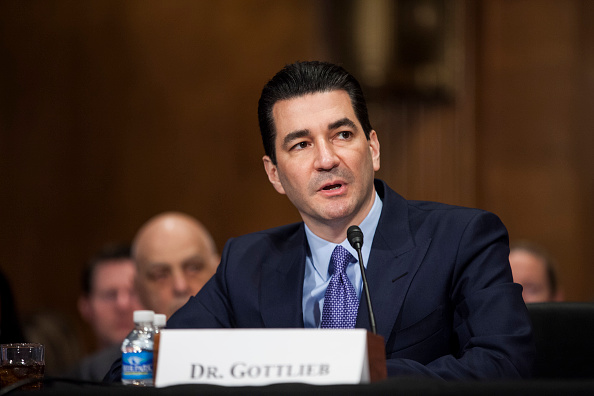
Outgoing Food and Drug Administration Commissioner Scott Gottlieb used his testimony before lawmakers on the FDA’s budget to highlight the agency’s efforts to combat the opioid crisis.
In his testimony, before the Senate Subcommittee on Appropriations, Gottlieb said that the $55 million he is requesting for the FDA to support its work on the crisis, which he said would remain the agency’s highest priority for “many years to come.” The total amount allocated for the FDA in the Trump Administration’s fiscal year 2020 budget is $6.1 billion.
“Today, I want to focus on one of my highest priorities since taking my role two years ago – the FDA’s work to combat the opioid crisis,” Gottlieb said in his remarks. “This is the biggest public health crisis facing the agency and remains one of the biggest crises facing our nation.”
The epidemic has become the subject of numerous lawsuits against companies that aggressively marketed opioid painkillers, often to patients for whom they were not appropriate. In January, a criminal trial against former executives of Insys Therapeutics began. The executives, including founder John Kapoor, were charged with conspiracy to commit racketeering, wire fraud and mail fraud, based on allegations that they used bribery and fraud to persuade doctors to prescribe the drug Subsys – a sublingual spray used to treat breakthrough cancer pain – mostly off-label, for patients who did not have cancers.
More recently, this week OxyContin (oxycodone) manufacturer Purdue Pharma and its founders, the Sackler family, reached a $270 million settlement with the state of Oklahoma that will allow them to avoid a courtroom trial, based on allegations that Purdue drugs contributed to the deaths of thousands of people. Purdue is perhaps the most infamous of opioid manufacturers and is also the subject of numerous other cases filed by federal, state and local governments. It was reported earlier this month that the company was exploring a Chapter 11 bankruptcy filing.
“We’re focused on decreasing exposure and preventing new addiction, supporting the treatment of those with opioid use disorder, promoting development of novel pain treatment therapies and increasing enforcement and carefully assessing benefit-risk of opioids,” Gottlieb said in his remarks.

The Funding Model for Cancer Innovation is Broken — We Can Fix It
Closing cancer health equity gaps require medical breakthroughs made possible by new funding approaches.
Gottlieb, who was appointed FDA commissioner in May 2017, announced his resignation on March 5. Norman Sharpless, director of the National Cancer Institute, was named acting commissioner, though others have been suggested to be Gottlieb’s ultimate successor as well.
Photo: Zach Gibson, Getty Images










